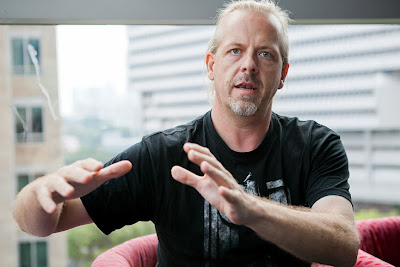The senior citizen version of romantic comedy is more poignant and funnier than it ever sounds on paper. It has its flaws, but don’t let that stop you from enjoying this rare occasion.
That’s the question that Hope Springs attempts to answer throughout a large part of its duration. Carell, an excellent method actor who has built a career out of playing batty characters over the past decade, pulls off the thorny task of playing the amenable Dr. Feld with a surprisingly controlled performance, remaining calm and sympathetic even as the couple becomes increasingly exasperated with each other. The husband – grumpy, stubborn and insecure – is, of course, played convincingly by Jones while Streep delivers a study in contrast with much aplomb, furnishing a clearly distraught Kay with glimpses of glamour through every hand gesture and facial expression.
Crucially, these outstanding achievements of the leads help Hope Springs become something more special than a dull monologue on the 101 tips of marriage; it’s a genuinely earnest portrayal of the scariness and loneliness of a life inside a failing marriage. Whether it’s an uneasy Kay running her fingers carefully across Arnold’s body for one of Dr. Feld’s ‘intimacy exercises’, or a blustering Arnold embarrassing Kay in a restaurant, or Dr. Feld conveying an unflinching wisdom in the presence of a flustered Kay, the leads handle their roles with a competence that allows the movie to fully exploit the raw emotions streaming between the characters. For this reason, it’s safer to avoid the movie if your marriage or relationship is on a short fuse.
That said, Hope Springs does attempt to break away from its allegoric visions for light-hearted moments once in a while. Dr. Feld sends Kay on a mission to purchase a self-help sex book from the local bookstore after Kay reveals her stress, resulting in a hilariously awkward stand-off between Kay and the bookstore owner when she asks him to help her find the book. A banana also gets to stand in for the male reproductive organ as Kay practices her moves. It’s all very basic stuff and unlikely to ruffle as many feathers as the more serious portions of the movie do. Which isn’t bad, but Hope Springs could certainly have done without the services of the comedy, especially if the aim of the movie is to maintain a more consistent and immersive tone.
With mainstream audiences suspiciously less enthusiastic about the experiences of a pair of senior citizens in a relationship than they are about the fiery sexual adventures of a pair of prepubescent teenagers, Hope Springs is like a jolt from the sky. With all three of its leads coming in at 50 years of age and above, asking for the movie’s success with mainstream audiences is hardly easy. Yet Hope Springs deserves notice not only because it’s actually one of the rare movies tailored for the young and the old, mainstream audiences and art house audiences, but also because its existence is already mystifying. The movie isn’t perfect, but I’ll take what I can get.
RATING 3.5/5
This review can also be viewed @ http://www.moviexclusive.com/detail.php?c=56&desc=H&p=1639&t=hope-springs-2012_1639.









